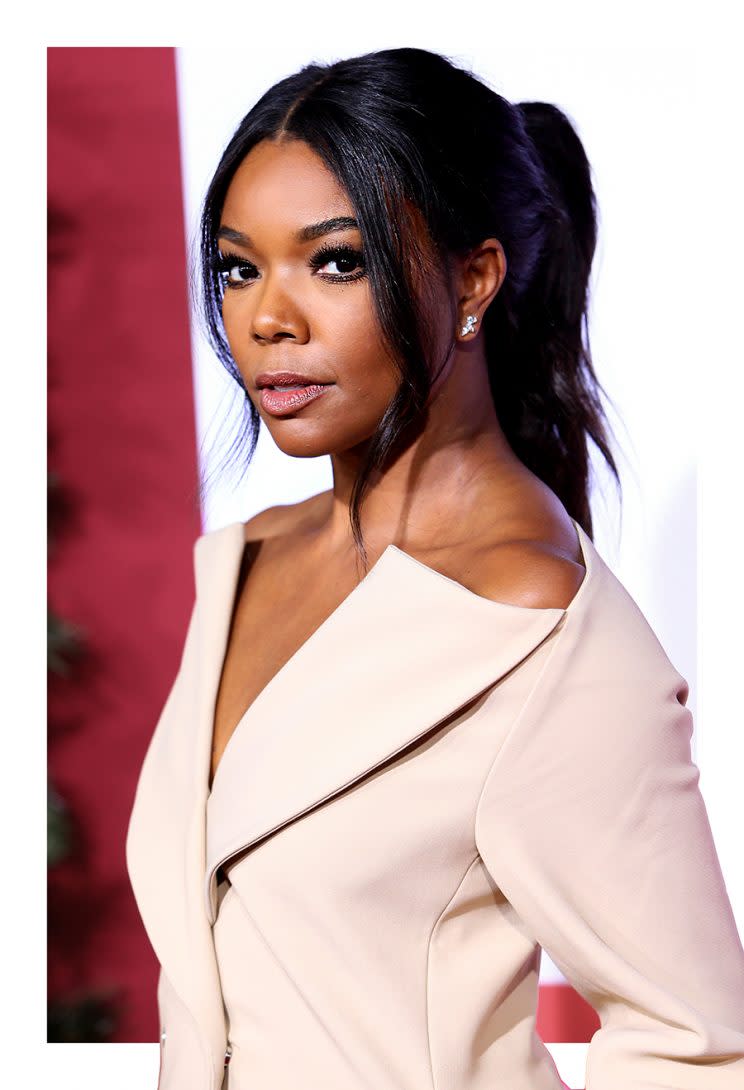Gabrielle Union on Learning to Love Her Brown Skin

For women of color like Melodi Parker, a licensed professional counselor, the fact that actress Gabrielle Union shared in a recent Harper’s Bazaar feature that she had felt insecure about her dark skin when she was growing up comes as no surprise.
“I didn’t love my skin color. I didn’t love my lips,” Union revealed. “I didn’t love my nose. I didn’t love my hair. I didn’t love anything. I didn’t love my body. Because no one was choosing me — my self-esteem was determined by somebody choosing me.”
Over time, Union learned to embrace her skin color and “live in her whole body,” as Harper’s Bazaar writer Rebecca Carroll put it.
But that insecurity, Parker tells Yahoo Beauty, is a part of the black ethos, a shared narrative among black women everywhere — many of whom, like Union, have wished at one point or another that their skin was a different color.
“I have a birthmark that is a shade lighter than the rest of my body, and when I was younger, I wished that it would extend all over me,” Parker says. “I had black dolls, but I refused to play with them, and I didn’t want people blacker than me to touch me, even though I lived in a black neighborhood and went to a black church. It took me years to get over that and to feel empowered enough to love myself.”
Professionals like Parker and licensed psychotherapist Stacy Kaiser worry that in the current political climate — including the aftermath of a racist post on social media from a West Virginia town official calling First Lady Michelle Obama an “ape in heels” — skin-color insecurities among African-Americans and other minorities could heighten, thereby causing a new generation to doubt their looks and abilities.
“Many more clients are questioning the color of their skin and worrying about it because they’re worried about the future of the country and their personal futures,” Kaiser tells Yahoo Beauty.
But experts say it is possible to counter the tide of negativity. Although some of the ongoing rhetoric can be frightening and damaging, there are also many positive messages out there, so “listen to them,” suggests Parker. Her personal favorite: Black Girls Rock, founded by former DJ and model Beverly Bond. “This is a powerful movement that brings to life different experiences, that shows us that dark or light, kinky-haired or straight-haired, we can make a difference,” Parker says.
Cori Broadus, Snoop Dogg’s daughter, has also shared positive and empowering messages for women of color on social media. She recently posted on her Instagram: “I can finally say I’m comfortable in my own skin, grew up despising the skin tone I was in because it’s been bashed on for so long & society has been putting in our heads that dark is ugly. For all you beautiful chocolate girls/ women out there you’re BEAUTIFUL & don’t let anyone tell you different.”
A photo posted by @princessbroadus on Nov 12, 2016 at 1:24pm PST
Senegalese model Khoudia Diop is another positive voice. The 19-year-old had been bullied over her dark skin, but she learned how to rise above it, even giving herself the nickname Melanin Goddess. “At first I confronted the bullies, but eventually I learned to stay positive, tune out the negativity and love myself more each day,” Diop told People. “This helped tremendously.”
A photo posted by Khoudia Diop (@melaniin.goddess) on Sep 23, 2016 at 3:20pm PDT
Others suggest giving it time, pointing out that with age comes greater self-confidence.
“When I was younger and growing up as one of the five black students in my elementary school, I definitely had a sense of wanting to belong,” Ni’Kita Wilson, a cosmetic chemist and founder of Skinects, tells Yahoo Beauty. “As I grew older, I started to embrace who I was and didn’t really desire to be anything but a strong black woman. This was especially important to me raising two beautiful black daughters who I refuse to feel ‘less than’ because of their skin color.”
For some of his clients whose skin-color insecurities are deeply embedded, psychotherapist Aaron Skinner-Spain works to get to the source of the pain.
“It’s important to identify triggers — whether they’re remarks people make about skin color, hair texture or whatever — and acknowledge that they make one feel devalued,” Skinner-Spain says. “Working back from there, you can find the things that then make a person feel valued.”
Let’s keep in touch! Follow Yahoo Beauty on Facebook, Twitter, Instagram, and Pinterest.
